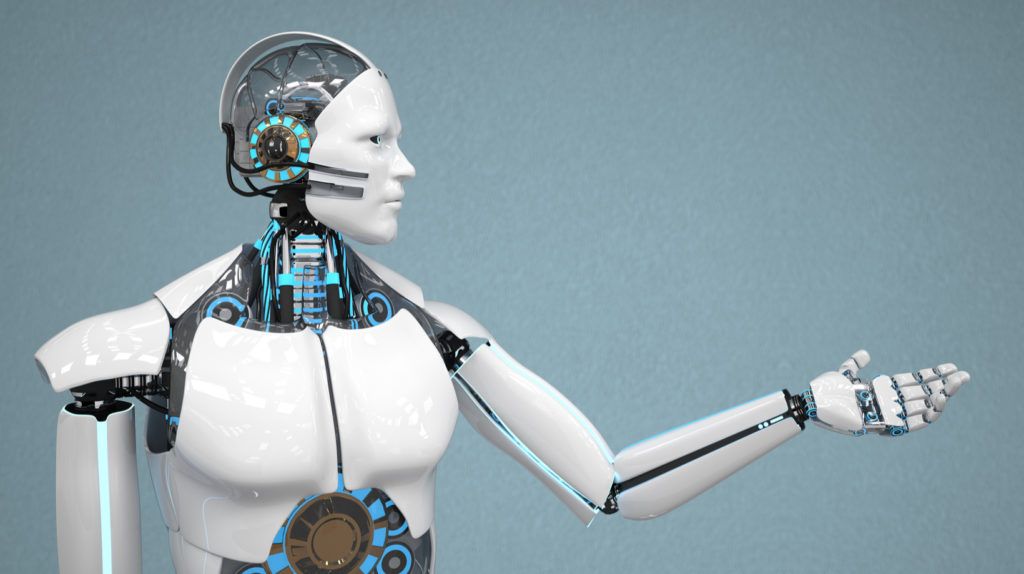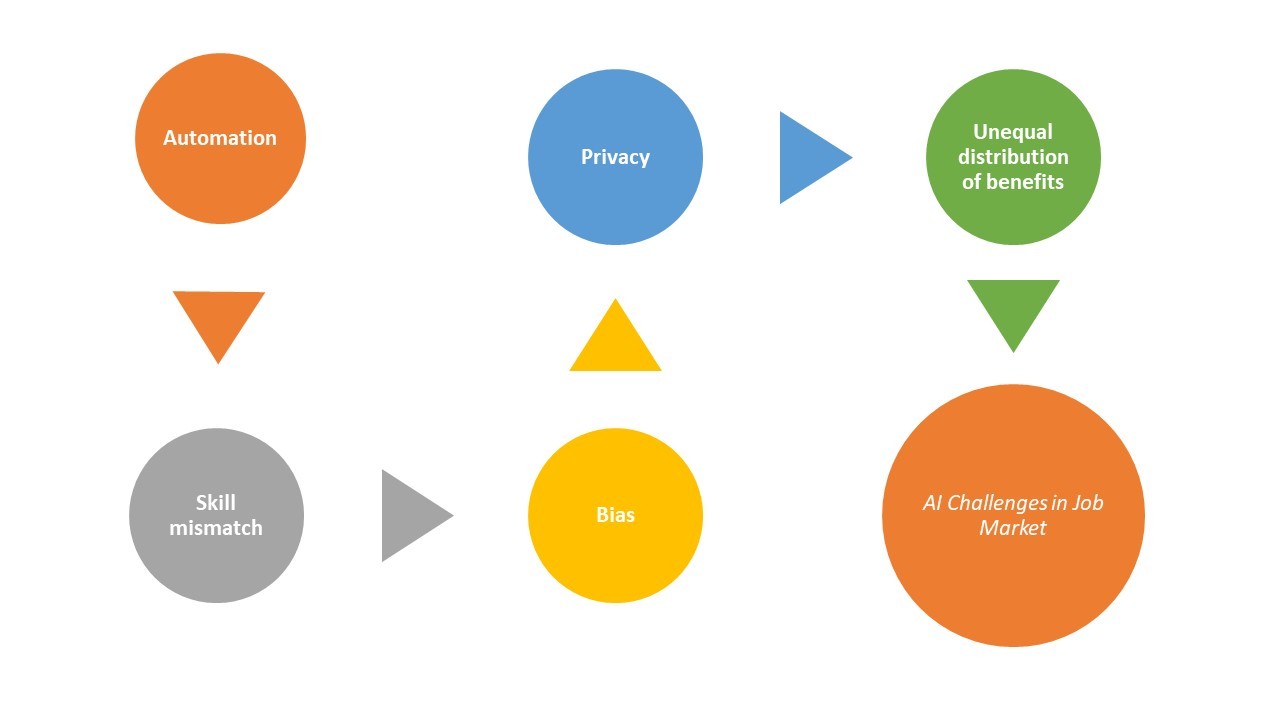Comments
- No comments found

Artificial Intelligence (AI) is set to revolutionize the workplace by creating new jobs.
One of the most significant impacts of AI has been on the job market. While there is much concern about the loss of jobs due to automation, there are also many new jobs being created in AI and related fields.
· Prompt engineering is a field of work that involves developing natural language processing (NLP) models and algorithms that can understand and respond to human language inputs in a way that is accurate, relevant, and coherent. This is the core technology behind many AI-powered systems that use natural language as an interface, such as chatbots (ChatGPT), virtual assistants, and voice-controlled devices.
· AI Ethics and Governance Specialist: As AI systems become more prevalent, there is a growing need for professionals who can ensure that these systems are developed and deployed ethically and responsibly. AI ethics and governance specialists help organizations to navigate complex ethical and legal issues related to AI, including issues around privacy, bias, and transparency.
· AI Business Strategist: As more companies invest in AI, there is a growing need for professionals who can help them to develop and execute AI strategies that align with their business goals. AI business strategists work with executives and stakeholders to identify opportunities for AI, develop business cases for AI investments, and ensure that AI initiatives are aligned with broader business strategies.
· AI Product Manager: AI product managers are responsible for developing and managing AI-powered products and services. They work with cross-functional teams to define product requirements, develop roadmaps, and ensure that products are delivered on time and within budget. They also need to stay up to date with the latest developments in AI technology and market trends to ensure that their products remain competitive.
· AI User Experience Designer: As AI becomes more ubiquitous, there is a growing need for professionals who can design user experiences that are intuitive, engaging, and responsive. AI user experience designers work with product teams to create user interfaces that are optimized for AI-powered interactions, such as chatbots , virtual assistants, and recommendation engines.
· AI Cybersecurity Analyst: As AI systems become more complex, they also become more vulnerable to cyber-attacks. AI cybersecurity analysts help organizations to identify and mitigate security risks related to AI, including issues related to data privacy, system vulnerabilities, and insider threats.
· AI engineers, for example, are responsible for creating and integrating AI algorithms into existing systems. They need to understand both the technical aspects of AI and the business needs of the organization they work for. They also need to stay up to date with the latest developments in AI technology to ensure that their systems remain competitive.
· Data scientists and machine learning specialists, on the other hand, work with large datasets to identify patterns and develop predictive models. They use algorithms to train AI systems to recognize and respond to specific inputs, such as images, speech, or text. This requires a deep understanding of statistics, mathematics, and computer science, as well as domain-specific knowledge in fields such as medicine, finance, or engineering.
· Software developers are responsible for creating the applications and platforms that run AI systems. They use programming languages such as Python, Java, or C++ to write the code that enables AI systems to communicate, learn, and make decisions. They also need to work closely with other professionals to ensure that the software is secure, scalable, and user-friendly.
These are just a few examples of the many new roles that are emerging in the AI job market. As AI continues to evolve, we can expect to see even more opportunities for workers with a range of skills and expertise. While these roles are critical to the development of AI systems, there are also many other jobs being created in related fields. AI is driving innovation in the healthcare industry, leading to the creation of new jobs in fields such as telemedicine, medical imaging, and personalized medicine. AI-powered tools are helping doctors and nurses diagnose and treat patients more accurately and efficiently, and are also facilitating medical research by analyzing vast amounts of data.
Another area where AI is creating jobs is in customer service and sales. Chatbots, virtual assistants, and other AI-powered tools are increasingly being used to interact with customers, answer questions, and provide personalized recommendations. This requires a range of skills, including natural language processing, customer service, and sales.
Beyond these specific roles, AI is also driving the growth of new industries and business models. For example, AI is fueling the rise of the gig economy, as platforms such as Uber, Lyft, and Airbnb use AI to match workers with jobs and customers with services. Similarly, AI is driving the growth of e-commerce, as companies such as Amazon and Alibaba use AI to personalize recommendations, optimize logistics, and improve customer experiences.
Indubitably, the rise of AI also presents some challenges. One of the most significant concerns is the potential for job displacement, as AI systems automate tasks that were previously performed by humans. This could lead to widespread unemployment in some industries, particularly those that rely on manual labor or routine tasks.
To address this challenge, policymakers and business leaders will need to focus on retraining and reskilling programs to help workers transition into new roles. They will also need to promote the development of new industries and business models that can create new jobs and provide new opportunities for workers.

While AI has created new job opportunities, it has also brought about certain challenges that must be addressed. Some of the challenges facing the job market due to AI advancements are:
1. Automation: The increasing use of AI in the job market has led to concerns about job displacement, particularly in industries that rely heavily on manual labor or repetitive tasks. While AI has the potential to increase productivity and efficiency, it can also lead to job losses if workers are replaced by machines.
2. Skill mismatch: The use of AI in the job market has also led to a shift in the types of skills that are in demand. Technical skills such as coding, data analysis, and machine learning are increasingly in demand, while some traditional skills such as manual labor and clerical work may be less in demand. This has led to a skill mismatch, where workers may not have the necessary skills to succeed in the job market.
3. Bias: One of the challenges facing the job market due to AI is the potential for bias. AI systems are only as unbiased as the data they are trained on. If the data used to train an AI system is biased, the system will reflect that bias. This can lead to discrimination in the job market, particularly in the recruitment and hiring process. For example, if an AI system is trained on data that is biased against certain ethnic or gender groups, it may result in discrimination against those groups in the hiring process.
4. Privacy concerns: The use of AI in the job market has raised concerns about the collection and use of personal data. Employers may collect data on job applicants through online profiles, social media, and other sources. This data may be used to screen candidates and make hiring decisions. There are concerns about how this data is collected, stored, and used, and whether it is being used fairly.
5. Unequal distribution of benefits: While AI has the potential to create new job opportunities and improve productivity, the benefits of these advancements may not be distributed equally. Some workers may benefit more than others, depending on their skills and job requirements. For example, workers with technical skills may benefit from the increasing demand for these skills, while workers without these skills may be left behind. Similarly, workers in certain industries may benefit more from AI than workers in other industries.
The challenges facing the job market due to AI advancements require careful consideration and planning to ensure that the benefits of AI are shared fairly and that workers are not left behind. This may involve investing in education and training programs to help workers acquire the necessary skills to succeed in the job market, ensuring that AI systems are transparent and unbiased, and addressing concerns about the collection and use of personal data.
Ahmed Banafa is an expert in new tech with appearances on ABC, NBC , CBS, FOX TV and radio stations. He served as a professor, academic advisor and coordinator at well-known American universities and colleges. His researches are featured on Forbes, MIT Technology Review, ComputerWorld and Techonomy. He published over 100 articles about the internet of things, blockchain, artificial intelligence, cloud computing and big data. His research papers are used in many patents, numerous thesis and conferences. He is also a guest speaker at international technology conferences. He is the recipient of several awards, including Distinguished Tenured Staff Award, Instructor of the year and Certificate of Honor from the City and County of San Francisco. Ahmed studied cyber security at Harvard University. He is the author of the book: Secure and Smart Internet of Things Using Blockchain and AI.
Leave your comments
Post comment as a guest